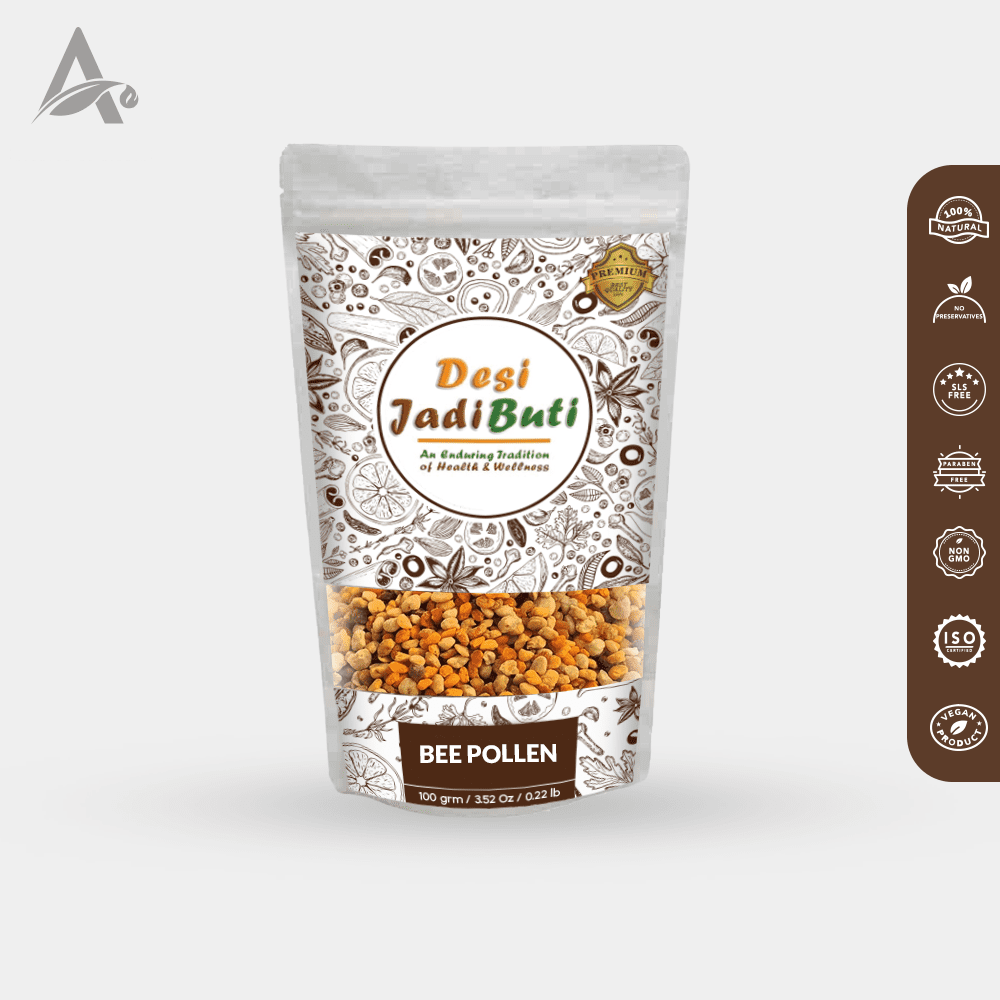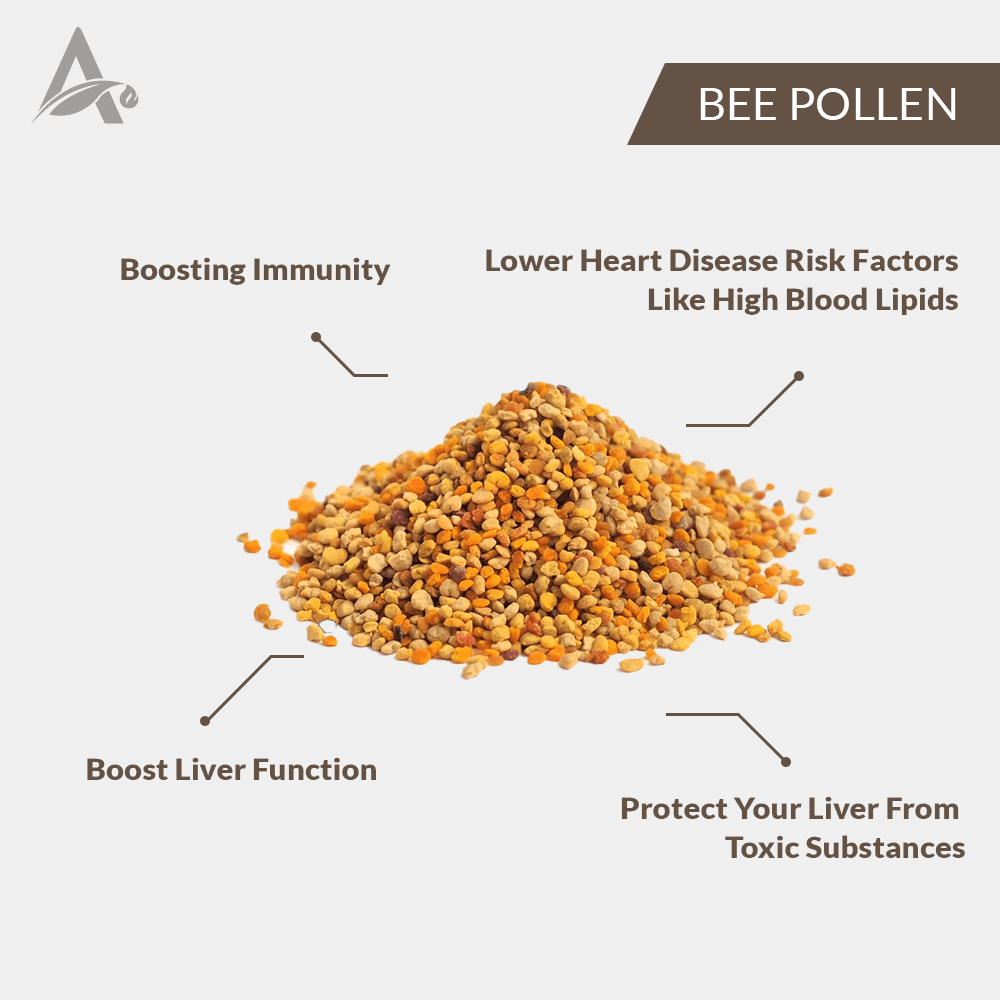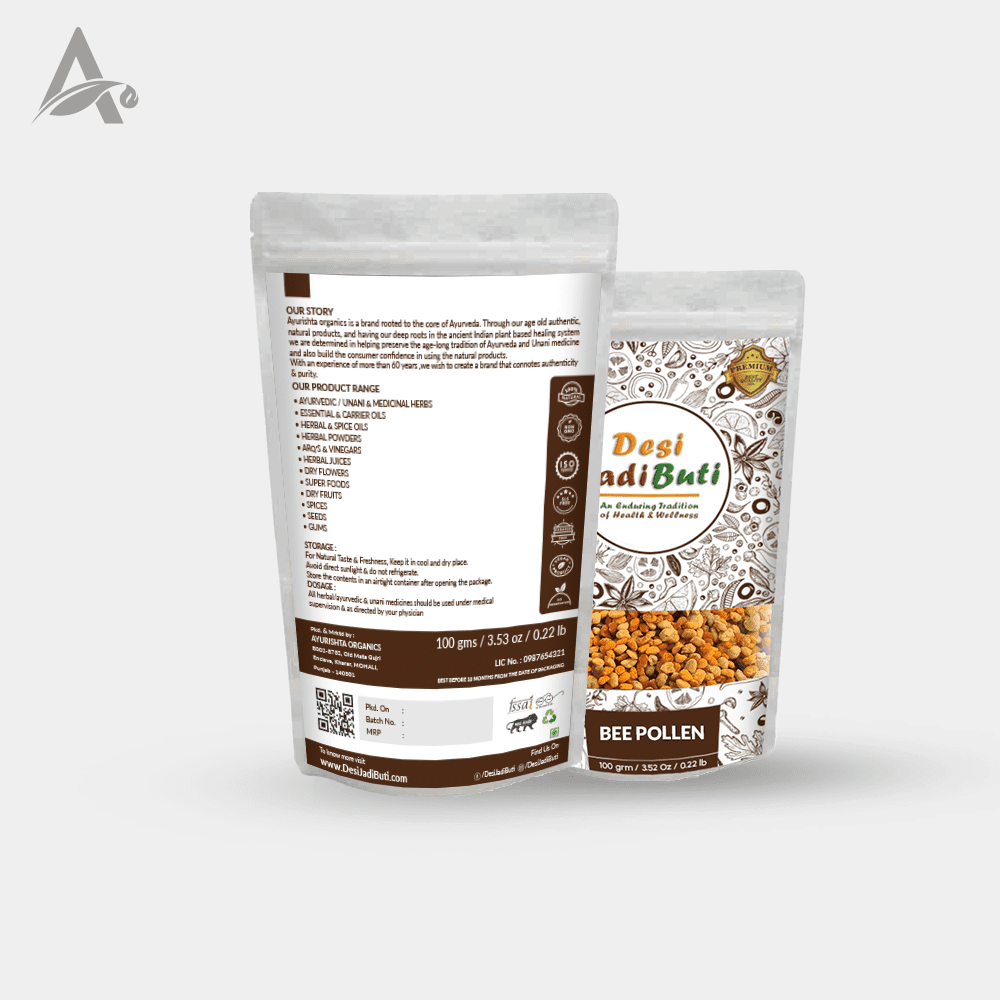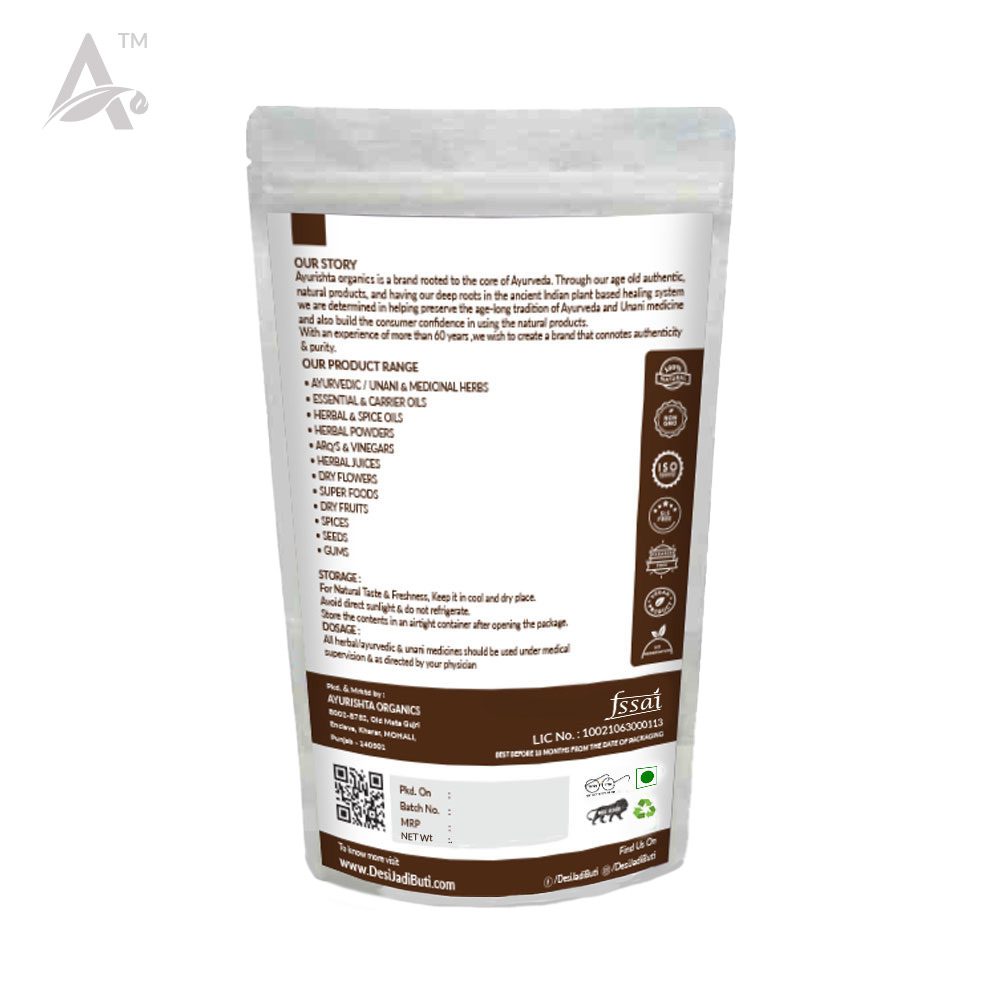Bee pollen, also known as bee bread and ambrosia, is a ball or pellet of field-gathered flower pollen packed by worker honeybees, and used as the primary food source for the hive. It consists of simple sugars, protein, minerals and vitamins, fatty acids, and a small percentage of other components.
Bee pollen is a mixture of flower pollen, nectar, enzymes, honey, wax and bee secretions. Bee pollen contains vitamins, minerals, carbohydrates, lipids, and protein. It comes from the pollen that collects on the bodies of bees as they fly from one flower to another. Bee pollen may also include bee saliva.
For years, herbalists have touted bee pollen as an exceptionally nutritious food. They’ve even claimed it is a cure for certain health problems. Yet after years of research, scientists still cannot confirm that bee pollen has any health benefits. Recently, bee pollen has gained traction in the health community because it’s loaded with nutrients, amino acids, vitamins, lipids and over 250 active substances. In fact, the Federal Ministry of Health in Germany recognizes bee pollen as a medicine. In addition, bee pollen is said to enhance energy, sharpen memory, slow the aging process, promote weight loss, and improve athletic performance.
It’s important to avoid confusing bee pollen with natural honey, honeycomb, bee venom, or royal jelly. These products do not contain bee pollen although there are combination products that contain one or more of these substances.
How to Use:
Bee pollen is sold as natural granules you can measure out and take by the spoonful. You can also mix it into other foods like granola or yogurt or make smoothies with it. It generally has a bitter taste, although people who take it regularly seem to get used to it
Benefits:
- Impressive Nutritional Profile With More Than 250 Active Substances including
- amino acids
- triglycerides
- phospholipids
- vitamins
- macronutrients and micronutrients
- flavonoids
- Pollen also contains the following important nutritional compounds:
Compound Percentage Protein 7–40%, including essential amino acids Carbohydrates 24–60% Fats 1–18%, including essential fatty acids Flavonoids 0.2–2.5% Vitamins A, B1, B2, B6, C, D, E Minerals Calcium, phosphorus, magnesium, potassium, sodium, iron, copper, silicon, selenium, zinc - High Antioxidant Content Protects From Free Radicals and Chronic Diseases
- May Lower Heart Disease Risk Factors Like High Blood Lipids and Cholesterol
- May Boost Liver Function and Protect Your Liver From Toxic Substances
- Packs Several Compounds With Anti-Inflammatory Properties
- May Help You Avoid Illness by Boosting Immunity and Killing Bacteria
- May Aid Wound Healing and Prevent Infections
- May Have Anticancer Properties
- May Ease Menopausal Symptoms Like Hot Flashes
- May Improve Nutrient Utilization, Metabolism and Longevity
- Safe for Most People and Easy to Add to Your Diet
Caution:
Bee pollen (depending on where the bee pollen comes from) can cause a serious allergic reaction — including itching, redness, shortness of breath, hives, swelling, and anaphylaxis. Bee pollen is not safe for children or pregnant women. Do not use this product if you are breast-feeding a baby.
Common side effects may include:
- skin rash, bruising, severe tingling, numbness, pain, muscle weakness, trouble breathing, upper stomach pain, loss of appetite, or swelling, rapid weight gain, numbness, tingling, or upset stomach.
Other Names:
Bee pollen, bea bread, Buckwheat Pollen, Extrait de Pollen d’Abeille, Maize Pollen, Pine Pollen, Polen de Abeja, Pollen d’Abeille, Pollen de Sarrasin,
Safety Information:
- For Natural Taste & Freshness, Keep it in cool and dry place.
- Avoid direct Sunlight & Do not Refrigerate.
- Store the contents in an Airtight Container after opening the package.
- All herbal medicine should be used under Medical Supervision only.
























































Reviews
There are no reviews yet.